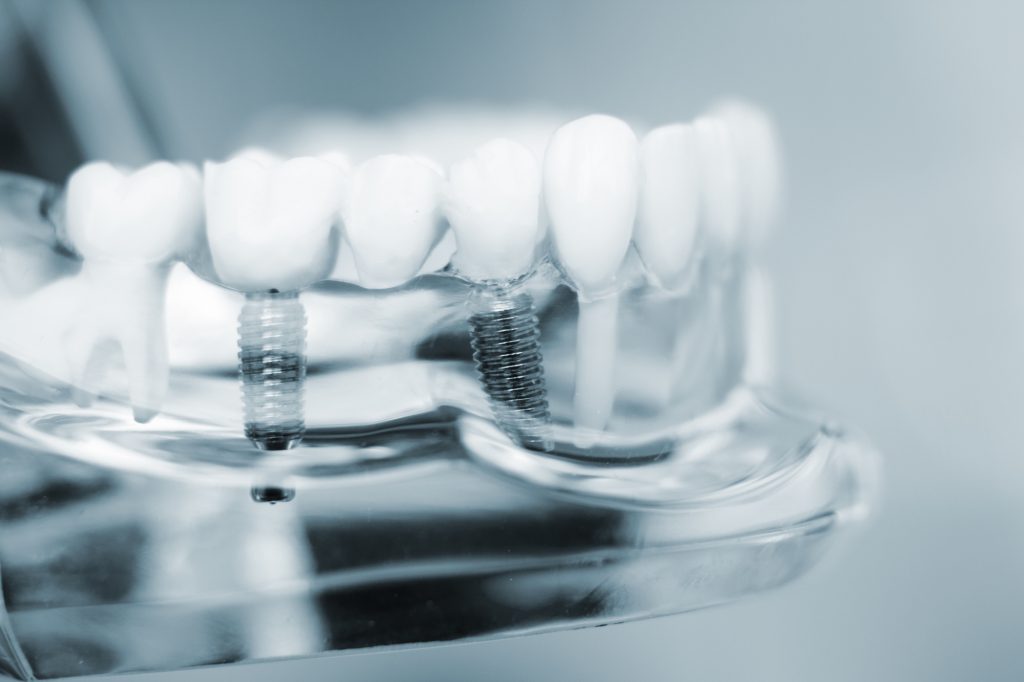Dental Implants Leatherhead – A Comprehensive Guide

In the past, dentures were the only way to restore your smile, but now there is an alternative called dental implants. What are they and are dental implants the right choice for you?
Dental Implants Leatherhead has put together this comprehensive guide to help you decide if they are the right method to restore your smile.
Why Dental Implants Might Be Necessary
You may not be aware that oral health is important to your overall health. Gum disease is extremely common among adults in the U.K. Plaque and bacteria buildup on the teeth and around the gums.
If not removed the excess plaque can lead to gingivitis. This may cause your gums to become tender or bleed. Eventually, you may develop periodontitis, which can weaken the gums and damage the jaw bone itself. With the supportive tissue weakened, your teeth may become loose and eventually fall out.
Dental Implants Explained
Dental implants are one of the best ways to restore your smile and preserve your remaining teeth. In a sense, dental implants provide a foundation for a fixed (permanent) tooth or removable prostheses.
Types of Dental Implants
There are two main types of dental implants.
- Endosteal – A post made of a hard metal such as titanium is surgically implanted into the jawbone.
- Subperiosteal – The oral surgeon places the implant under the gumline but above the jawbone.
In some cases, you might need a single implant or an implant-supported bridge, which replaces multiple teeth.
Benefits of Dental Implants
Because the metal posts are put directly into the jawbone, you do not have to worry about them slipping or shifting. Implants are also designed to look and feel more like your natural teeth.
Benefits:
- Eat what you want
- Speak without slurring or mumbling words
- More natural appearance
- More comfortable than dentures
- Better fit than dentures
- Stronger and more durable
- Preserve the surrounding natural teeth
In the end, dental implants are more convenient as you do not have to take them out and clean or soak them.
Dental Implant Steps
Getting dental implants requires a series of steps that can take several weeks or months to complete. Your timeline will depend on the condition of your jawbone and remaining teeth.
Step 1: Determine Your Plan
First, your dental care team will come up with a plan that meets your needs. An oral surgeon will examine your teeth and determine which type of dental implant will work best. It might be necessary to extract damaged teeth before getting your implants.
Step 2: Strengthen Your Jawbone
If there has been damage to your jawbone or the bone has gotten too soft, you might require bone grafting. This helps strengthen the bone so it can support the implant.
Step 3: Insert the Implant
With this step, the metal post is implanted into the jawbone. At this point, you can leave the space open or have a temporary crown placed over the post for a more natural appearance.
Step 4: Wait for Bone Growth
The bone takes time to grow and attach to the implant in a process called osseointegration. This can take several weeks. Once completed, you will have a more secure base in which to attach the permanent crown.
Step 5: Place the Abutment
Once the bone has become strong enough, an abutment will be placed. This attaches to the crown (tooth) to hold it in place. The procedure does not take long and usually only requires local anesthesia.
Step 6: Attach the Crown
Once the abutment has been placed, your gums will need to heal for a couple of weeks. Then the crown will be placed on top of the metal post. Crowns are designed to match the size, shape, and color of your natural teeth.
How Much Do Dental Implants Cost?
The cost of dental implants varies depending on several factors.
- The number of implants
- The materials used
- Other procedures required such as bone grafting
Obviously, multiple implants will cost more. A full set of dental implants meant to replace all or most of your teeth can cost around £4800 (or £1950 per implant). There will also be costs related to procedures such as tooth extraction or bone grafting.
Dental Implants After Tooth Extraction
It is often necessary to extract damaged teeth in preparation for implants. In this case, you will generally need a minimum of 10 weeks to heal before the implants can be placed.
Dental Implants and Receding Gums
Perhaps you have receding gums due to periodontitis or another condition. If this is the case, you may still be able to get dental implants. However, you will most likely need a grafting procedure that will help provide the gum support needed for the implant.
Dental Implants and Oral Cancer
Although there has not been a direct link between dental implants and oral cancer, there may be a reason for caution. Peri-implantitis is a type of inflammation that can occur in the soft tissue surrounding dental implants. In some cases, this inflammation can look similar to squamous cell carcinoma, a type of oral cancer.
Some studies do point to the development of squamous cell carcinoma in the areas around implants. However, those who did develop cancer also had other risk factors such as alcohol consumption, tobacco use, or previous incidence of oral cancer.
Get Your Perfect Smile Back
Dental Implants Leatherhead is here to help you smile freely again. Dental implants are designed to look and feel like natural teeth so no one knows you have them. Plus, your lifestyle and eating habits will not be affected at all.
Contact us today to book a free consultation.

BSC, BDS (KING’S COLLEGE LONDON), MJDF RCS (ENG)
PRINCIPAL DENTAL SURGEON, GDC NO: 177407
Shiral qualified from King’s College London with degrees in Biomedical Science in 2004 and Dentistry in 2009. Shiral went on further to complete her membership in the joint dental faculties (MJDF) examinations with the Royal College of Surgeons. Shiral has undergone extensive training in both practice and hospital.
Shiral is the new Principal owner of Horsley Dental, your local Leatherhead dentist.

